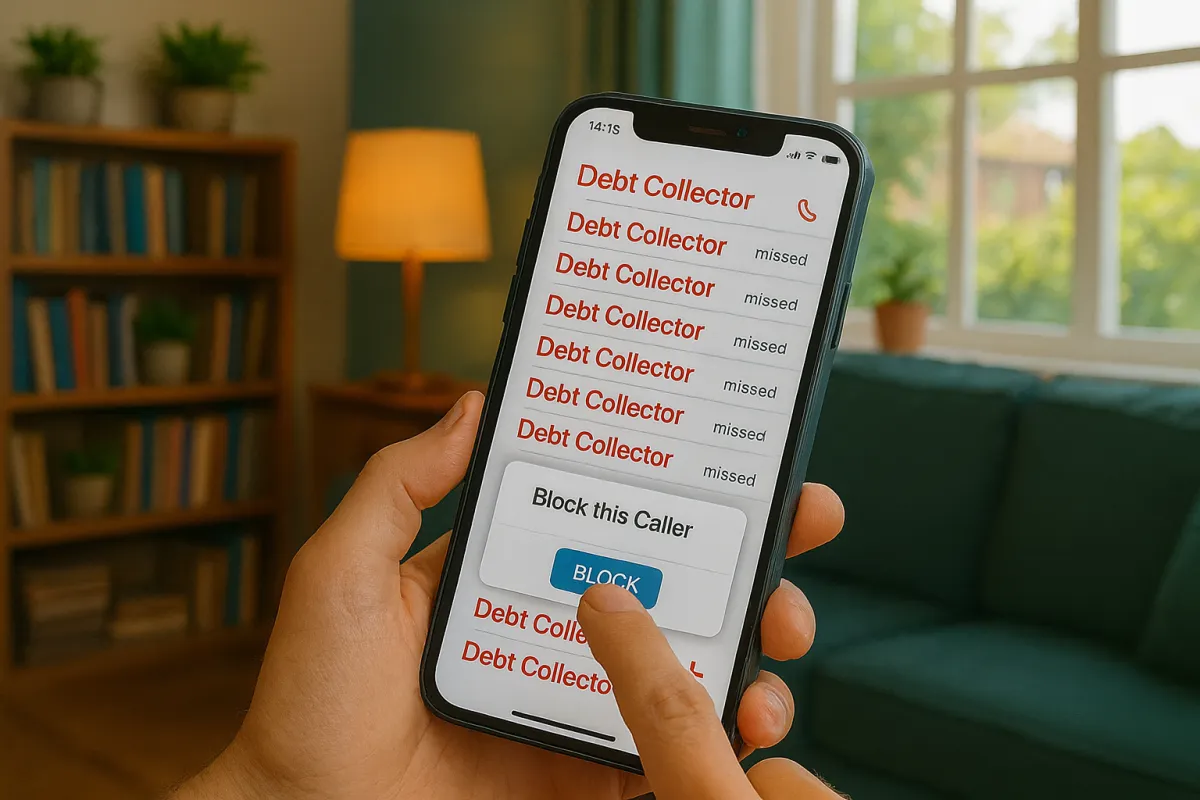
What Happens If You Ignore Your Debt Collectors?
“It put us so behind on bills. Our house payment, electric, phone bills, food for the kids. It took away from everything.” - Nicole Silva
Nicole Silva is a Colorado preschool teacher whose wages were garnished after a $2,181.60 ambulance bill grew with court fees and interest (Source: KFF Health News).
Nicole’s story is far from rare. Medical debt, credit card balances, and unpaid bills quietly move from overdue notices to aggressive collections. And if you don’t respond, the situation can turn into a legal and financial crisis before you even realize it.
The Federal Reserve Bank of New York reports that 4.7% of consumers have a third-party collection account on their credit reports. That’s 15 to 20 million people. Even with recent changes that removed certain small or paid medical debts, around 15 million Americans still have medical bills in collections. (Source: New York Fed, CFPB)
What Happens When You Ignore Debt Collectors?

Avoiding calls or letters might feel easier, but the consequences don’t wait.
Here’s what you could be facing:
Your credit score will suffer.
A collection account can drag down your score for up to 7 years, even after it's paid off. This affects your ability to rent, finance a car, or even get a job.You could be sued and lose by default.
If you ignore a lawsuit, the court may issue a default judgment. That means the collector can legally pursue your wages, bank accounts, or assets.Wage garnishment and frozen accounts.
After a judgment, debt collectors can freeze your bank account or take a percentage of your paycheck, without warning in some states.The debt grows.
Every month you ignore it, interest, late fees, and legal costs add up. A small bill can snowball into an overwhelming burden.
What You Can Do to Protect Yourself
Here’s the good news: you have rights and options.
1. Know Your Rights Under Federal Law
The Fair Debt Collection Practices Act (FDCPA) protects you from harassment, deception, and unfair practices. Debt collectors cannot:
Call before 8am or after 9pm local time
Contact you at work if they know your employer prohibits it
Threaten arrest or violence
Continue collection without verifying the debt if you request it in writing within 30 days of the initial notice
2. Ask for Written Validation
Within 30 days of getting the first notice, you can ask for a validation letter that confirms:
The amount you owe
Who you owe it to or the name of the creditor
Documentation that the debt is yours
This also buys you time to make informed decisions before agreeing to anything over the phone. Collectors must pause collection until they send verification.
3. Consider Debt Relief Options
You don’t have to deal with collectors alone. My Debt Navigator helps people in your exact situation:
Review your full debt profile
Negotiate settlements or payment plans
Stop the calls and threats legally
Build a plan that fits your life, not your fear
Silence Isn't Safety
If you've been ignoring the calls, it's not lazy or irresponsible. It's overwhelming. Debt collection is loud, intimidating, and often confusing. But avoiding it doesn’t protect you. It exposes you.
“Courage doesn’t always roar. Sometimes courage is the quiet voice at the end of the day saying, ‘I will try again tomorrow.’” — Mary Anne Radmacher
You can try again. And this time, you don’t have to do it alone.
Ready to Take the First Step?

Let’s stop the spiral before it becomes a lawsuit or garnishment.
We’ll help you understand your rights, explore your options, and protect your future, one step at a time.
Start your payoff journey by booking a call with My Debt Navigator today.
DISCLAIMER: This blog is for informational purposes only and does not constitute legal advice. State laws may vary.